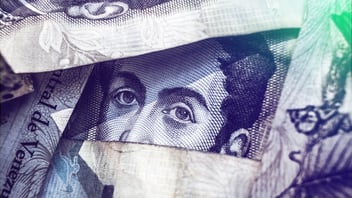On March 28th, just a few weeks after the banking crash of SVB and the collapse of Credit Suisse, French banks came under scrutiny for taking part in alleged tax fraud. Several banks were under investigation for a type of tax avoidance known as “cum-cum trading,” or Cum-Ex. These schemes involve large-scale tax fraud across borders. This type of tax fraud was previously investigated by the consortium of investigative journalists CORRECTIV, who published their findings as the Cum/Ex Files investigation in 2018. This earlier investigation uncovered massive tax fraud affecting 11 countries and involving over $55 billion in fraudulent transactions. The Cum/Ex files describe the scheme in a sentence: “highly complex share deals with no economic purpose other than to receive tax ‘reimbursements’ from the state – but for tax that had never in fact been paid.”
In this latest investigation, various French banks have come under the tax evasion and potential money laundering spotlight.
Cross-border tax fraud and banks
The Cum-cum and derivative Cum-Ex schemes work because of “dividend arbitrage strategies” and the exploitation of tax frameworks and tax gaps across jurisdictions. Germany was a case in point; in Germany, multiple persons could claim ownership of the same shares, which provided the right to receive a refund of the same amount as the taxes were withheld from dividend payments. The Cum/Ex files identified the German model as providing a framework for tax withholding. After the release of the Cum/Ex Files expose by CORRECTIV, a scandal broke out in Germany, resulting in the investigation of over 100 banks.
German tax authorities lost €32 billion (US$ 36 billion) between 2001 and 2016 because of tax withholding schemes. Moreover, the fall-out from earlier investigations proved harsh: the European branch of Canadian Maple-Bank was forced to file for bankruptcy, the bank being investigated as part of a money laundering and tax evasion probe in September 2015.
On March 28, 2023, the Paris headquarters of several banks, including Société Générale, BNP Paribas, HSBC Holdings Plc, and Natixis SA, opened their doors to a major tax fraud investigation. The allegation is that the banks under question were involved in Cum-Ex tax fraud schemes and potential money laundering. This latest investigation continues an earlier inquiry back in December 2021. The foundation of fraud involves the cross-border transference of stock from one individual to another. It works because the investor that lives outside the tax jurisdiction holds the shares for a short period when dividends are paid out, thus avoiding tax. After the payment of dividends, the securities are then sold back to the original holder, and the tax saving is split.
France is not the only country under the Cum-Ex spotlight. In January 2023, Reuters reported that investigators were searching the office of BNP Paribas in Frankfurt for Cum-Ex activity. The investigation also involved the search of the private residences of 58 suspects. Reuters reported in January that this investigation involved “100 banks on four continents and at least 1,000 suspects.”
What part does a bank play in Cum-Ex tax evasion?
To make Cum-Ex schemes work, a bank is part of a network of others, including lawyers and stockbrokers, that work in unison to perpetrate tax evasion; banks provide the loans for the trade. The bank then issues a ‘confirmation’ to the investor confirming the tax payment on the dividend - even though tax has not been paid. The tax lawyers provide written confirmation of the legitimacy of the transaction. With these instruments in place, the investor can have the tax ‘reimbursed’ by the state.
Examples of fines issued to banks under Cum-Ex investigation
Tax evasion, fraud, and money laundering have all been uncovered during the investigation of Cum-Ex tax evasion schemes. While Maple Bank may have closed because of tax evasion fraud, other banks are heavily fined. For example, recent fines from the FCA include:
Sapien Capital Ltd: the FCA fined Sapian Capital £178,000 ($220,000) in 2021 for Cum-Ex trading. The fine included a notice of a lack of customer due diligence and risk assessments.
Sunrise Brokers: the FCA fined Sunrise Brokers £642,400 ($794,000) in 2021. The fine concerning Cum-Ex trading and the FCA noted deficient systems and controls used to identify and mitigate the risk of facilitating fraudulent trading and money laundering.
The TJM Partnership: the FCA fined TJM Partnership £2,038,700 ($2,521,294) while in liquidation. The charge was a lack of adequate procedures, systems, and controls to identify and mitigate the risk of financial crime and money laundering.
What can the banks expect from the regulators this time?
This latest set of investigations in France is part of ongoing investigations to root out tax evasion and associated money laundering. After earlier investigations, the European Securities and Markets Authority (ESMA) produced a “FINAL Report On Cum/Ex, Cum/Cum and withholding tax reclaim schemes.” The report states that “ESMA analysed the structure of such schemes in light of the requirements of the MiFID II framework and evidence from market data.” The 71-page report details the volume and level of Cum-Ex schemes across Europe. ESMA concluded that Cum-Ex was a tax-related issue and included suggested measures such as using the Treaty Relief and Compliance Enhancement (TRACE), new due diligence processes, and collaboration across jurisdictions.
It is also important to note the human angle when regulators investigate large-scale fraud, and these latest investigations may not just result in heavy fines. For example, in December 2022, German lawyer Hanno Berger was imprisoned for eight years for his part in a Cum-Ex scheme.
Ultimately, the regulators, alongside tax authorities, must work together to stem the use of tax evasion schemes such as Cum-Ex.
Allegations of involvement in tax fraud are about as serious as it comes in banking. However, a lack of appropriate systems and controls to ensure legitimate transactions extends beyond tax evasion. Banking is a connected ecosystem, and irregularities that warrant large-scale investigations have an impact that causes ripples across the markets. Add these investigations to the recent Credit Suisse and SVB debacles, and a potential storm is coming. However, the lessons learned from 2008 and the widespread use of anti-fraud measures across the sector will prevent a rerun of the banking collapses of yesteryear.
Eastnets suite of Crime and Compliance solutions can help you stay ahead of the risks. Learn more.





